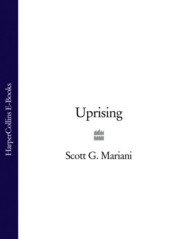По всем вопросам обращайтесь на: info@litportal.ru
(©) 2003-2024.
✖
A Small Death in Lisbon
Автор
Год написания книги
2019
Настройки чтения
Размер шрифта
Высота строк
Поля
‘This Russian campaign . . .’ Felsen started and Lehrer held up his hand.
‘You will get your intelligence by degrees,’ he said. ‘Let me ask you something first. What happened in the skies over England last summer?’
‘I’m not sure we can read the precise truth in the Beobachter or the 12-Uhr Blatt.’
‘Well, the precise truth,’ said Lehrer leaning over and whispering into his brandy, ‘is that we lost a great air battle. Goering will tell you otherwise. Goering has told me otherwise, but we all know how he keeps his distance from reality . . .’
‘Excuse me, sir?’
‘Nothing,’ said Lehrer, straightening himself with a belch. ‘The loss of a great air battle. What does that mean to you?’
‘But we haven’t been bombed in Berlin for nearly two months.’
‘Berliners,’ said Lehrer, despairing, ‘even new Berliners, my God, man, believe me, we lost it. Now come on, tell me what that means.’
‘If it’s true, then we are exposed.’
‘In the west and in the air.’
‘So if we open up on an Eastern . . .’
‘That’s enough. I think you’ve understood something.’
‘What is England with the Channel in between,’ said Felsen. ‘They’re no threat.’
‘I’m not being defeatist,’ said Lehrer, ‘no, no, no. But listen. We let them get away at Dunkirk. If we’d smashed them on the beaches then we’d be having this meal in London and we’d have nothing to worry about. But the English are determined. They have a friend across the Atlantic. The biggest economic force in the world. The Führer doesn’t believe that, but it’s true.’
‘Perhaps we’ll all join forces and smash the Bolsheviks.’
‘That’s a hopeful reading of the situation. Here’s another,’ said Lehrer putting down his glass and screwing his cigar in between his teeth. He chopped down his left hand on the table and said: ‘The United States and England.’ He removed his cigar, chopped down his right hand and mouthed the word: ‘Russia.’ He pressed them together. ‘And all that’s left is a thin scraping of liverwurst in the middle.’
‘Totally and utterly fantastic,’ said Felsen. ‘You’re forgetting . . .’
Lehrer guffawed.
‘That’s the thing about intelligence. It’s not always what you want to hear.’
‘But do you believe that?’
‘Of course I don’t. It’s just a thought. Don’t trouble yourself with it. We will win the war and you will be in a perfect position to become one of the most powerful businessmen in the Iberian Peninsula. Unless, of course, I’ve misjudged you and you’re a complete fool.’
‘And if we lose, as you’ve suggested we possibly might?’
‘If you’re in Berlin and you listen to the Berliners, you’ll be jam in the bottom of a bomb crater. But out there on the edge of the continent you will be far away from the disaster . . .’
‘Then I have every reason to thank you for forcing this job on me, Herr Gruppenführer.’
Lehrer raised his glass and said: ‘Prosperity.’
They’d drunk the best part of half a bottle of cognac and when the fresh evening air hit the older man he breathed it in deeply, backed himself into the rear of the Mercedes and collapsed with his head thrown forward on to his chest. Felsen tried to think his way through their conversation while listening to the air whistling in and out of the other man’s nose. It was like piecing together a jig-saw with too much sky and it wasn’t long before his cheek was picking up the indent of the piping round the leather upholstery.
They woke up in the Bundesplatz in central Bern. Lehrer was groggy and on the verge of ill temper. They passed the parliament building and the Swiss National Bank before leaving the square and pulling up outside the Schweizerhof. A doorman and two bellboys rushed the car.
Their rooms were on different floors and as they went up in the lift Lehrer told Felsen he had business to attend to that night and he could have the evening to himself.
‘You’ll need it to read these,’ he said giving him a folder from his briefcase.
‘What are they?’
‘Your orders. I go back to Berlin first thing in the morning. You may have some questions. Prepare them. Goodnight.’
Felsen ran a bath and flicked through his orders which started at the Swiss National Bank at 8.00 a.m. He soaked in the bath but still felt dull from the lunch. He dried off, redressed and went out into the sub-zero temperature to walk off his head. In a few short minutes he was freezing. A bar next to the railway station looked warm and he saw it contained Lehrer’s driver.
He bought two beers and joined the driver.
‘I envy you,’ said Felsen, chinking glasses. ‘You’ll be back in Berlin by tomorrow night.’
‘Not quite.’
‘You’ve got the whole day, once you get on the autobahn . . .’
‘We go down to Gstaad first for a few days. He likes the mountain air and . . . other things.’
‘Oh yes?’
‘When they’re away they always like to play . . . even Himmler and you wouldn’t think anyone would want to play with him. Power,’ said the driver staring into his beer, ‘it does it for the ladies, I can tell you.’
Felsen finished his drink and headed back to the Schweizerhof. Lehrer was still in his room. Felsen sat in the bar until he saw him coming through the reception and going out into the night. He decided to gather his own intelligence, rather than let Lehrer serve it to him in portions, and fell in behind him. They walked through the streets of the old city. There were few people about but it was easy to follow him down the dark pavements overhung by the green sandstone houses. Finally Lehrer turned down a street and when Felsen arrived at the corner there was nothing but a single lit sign which said Ruthli in red. He felt foolish. It meant nothing that Lehrer had a girlfriend in Bern. But curiosity drew him on.
He went into the club, handed over his hat and coat and took a table in the dark. A fat man with black brilliantined hair was playing the piano while a girl with a long red wig stood in a spotlight and sang something sad in Swiss German. He ordered a cognac. He couldn’t see Lehrer. The cognac arrived and a few minutes later a girl sat down next to him. They spoke in French. His eyes got used to the dark and he found Lehrer sitting at a table close to the stage with a woman who was blocked out by the big man’s shoulders.
The club filled up. The girl asked him to buy her a drink. It arrived in a bucket of ice. She was very young and too thin for his taste. She moved closer with her drink and stole one of his cigarettes. The red-wigged girl slipped off the stage with her sad song and fat pianist. There followed a drum roll and spotlights flashed around the club catching people unawares. One spot hit Lehrer’s companion full in the face. She closed her eyes to it and turned her head but not quick enough. It brought Felsen out of his seat and tipped the girl’s glass across the table. Cymbals clashed. The audience faded to black. The spotlights stilled on a red curtain which split and revealed a man in a top hat and tails. But there was no mistaking what Felsen had seen. The white face in the spotlight had been Eva Brücke’s.
Chapter IV (#ulink_48d161b9-b03b-51a8-b496-de214890a5b5)
Friday, 12th June 199–, Paço de Arcos, near Lisbon.
‘Ladies and gentlemen,’ said the mayor of Paço de Arcos, ‘may I present to you Inspector José Afonso Coelho.’
It had been a hot day with a perfect blue sky and now a soft lick of a breeze was coming off the ocean to mess with the poplars and pepper trees in the public gardens. The faded pink disused cinema’s walls drank in the evening light, a small girl squealed, rocking on a happy dinosaur, a big man smoked and sucked beer next to her, women greeted each other with kisses, their dresses rippled in the cool. Cars flashed past on the Marginal, a light aeroplane sputtered out to sea over the sand bank. The air was redolent of grilled sardines and a bureaucrat had a microphone.
‘Zé Coelho,’ said the mayor, using my more recognized name, but still not squeezing out much more interest from the festa de Santo António crowd which included my sixteen-year-old daughter, Olivia, my sister and brother-in-law and four of their seven children.
The mayor talked on, elaborately explaining the event in rococo Portuguese to a robustly inattentive public consisting mostly of my neighbours, who were well apprised of the bare facts which were: my wife died a year ago, I put on weight, to encourage me to take it off my daughter arranged this charity event with money pledged against each kilo lost and if I was a single gram over eighty kilos I was to have my perfect, neatly-clipped beard of twenty years shaved off in front of this rabble.
My daughter waved at me, my brother-in-law gave me a thumbs-up. I weighed in that morning at seventy-eight kilos, my stomach hadn’t been as hard and flat since I was eighteen and I’d been cycling 250 kilometres a week with the police trainer. I was feeling supremely confident . . . until the mayor had started talking. There was something mannered about the crowd’s insouciance, something insincere about my brother-in-law’s encouragement, even my daughter’s wave. I had a part to play, I knew it at that moment.
A fat man, balding with a heavy moustache, wearing a blazer, grey slacks and a wild tie arrived at my daughter’s table. He kissed her on both cheeks and squeezed her shoulder. One of my nieces made room for him and after shaking everybody’s hands he sat down.











